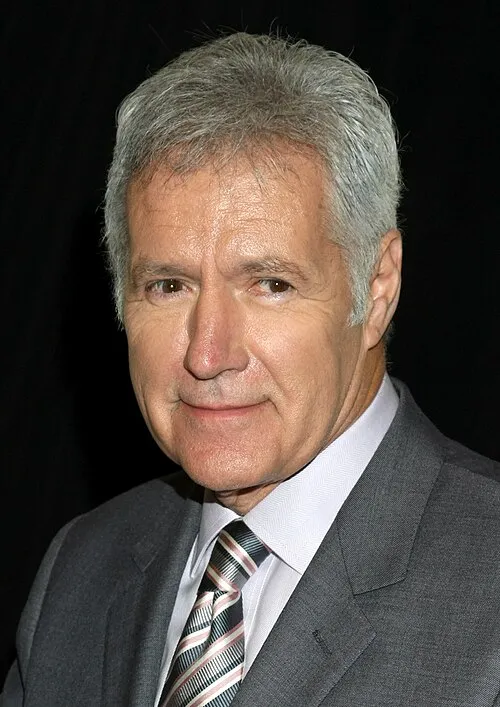In 2020, Myanmar conducted its general election, resulting in the re-election of the National League for Democracy. However, the democratic government faced a dramatic turn of events when it was ousted by the Burmese military during the 2021 Myanmar coup d'état in February.
On November 8
14
Important Days
60
Important Events
360
Births and Deaths
recorded.
Holidays and Occasions
Events
Births and Deaths

Honoring Intersex Day of Remembrance in New South Wales, Australia
Every year, on November 14th, the global intersex community and allies come together to observe the Intersex Day of Remembrance. This day serves to commemorate the rights and dignity of intersex individuals, raising awareness about the discrimination and violence faced by them across the globe...

International Day of Radiology: Honoring the Role of Imaging in Healthcare
The International Day of Radiology (IDoR) is observed on November 8 each year, recognizing the pivotal role of radiology in healthcare. Established by the European Society of Radiology (ESR) in collaboration with the Radiological Society of North America (RSNA), this day serves to raise awareness about the contributions of radiologists and radiologic technologists to medicine...

Understanding National Aboriginal Veterans Day in Canada
Every year on November 8th, Canada pays tribute to the brave men and women of First Nations, Inuit, and Métis heritage who served in the Canadian Armed Forces. National Aboriginal Veterans Day is a solemn reminder of the sacrifices made by Indigenous individuals during times of conflict and peacekeeping missions...

Synaxis of the Archangel Michael and the Bodiless Powers of Heaven in Eastern Orthodox Church
The Synaxis of the Archangel Michael and the other Bodiless Powers of Heaven is a significant feast in the Eastern Orthodox Church, celebrated on November 8th. This day commemorates not only the chief of the heavenly hosts, Archangel Michael but also the entire assembly of archangels and angels that serve God in the spiritual realm...

Celebrating World Urbanism Day: A Global Call for Sustainable Urban Development
World Urbanism Day, celebrated annually on November 8th, is an essential reminder of the importance of urban planning and sustainable development. Founded in 1949 by the Congress for the New Urbanism, this day aims to raise awareness about urban issues and promote better living conditions in urban spaces...

Victory Day: Celebrating Azerbaijan's Heritage and Valor
Victory Day, celebrated on June 26, is one of the most significant and patriotic occasions in Azerbaijan. This day commemorates the heroic victories of the Azerbaijani Armed Forces, primarily honoring the liberation of the country from foreign domination and remembering the sacrifices made during the Great Patriotic War...

Saint Elizabeth of the Trinity: A Spiritual Guide for Our Times
Saint Elizabeth of the Trinity, born on July 18, 1880, in Avord, France, is a revered figure in the Roman Catholic Church. Her life and teachings resonate with many today, offering insights into deepening one's relationship with God through contemplative prayer...

Understanding the Four Crowned Martyrs: Saints of Courage and Faith
The Four Crowned Martyrs, recognized in the Christian tradition, are revered figures known for their unwavering faith and courage in the face of persecution. Celebrated on November 8, these martyrs symbolize the triumph of spiritual conviction over tyranny and serve as a source of inspiration for countless believers around the world...

Godfrey of Amiens: Legendary Crusader and Defender of Jerusalem
Godfrey of Amiens, also known as Godfrey of Bullom, is a prominent figure in the context of the First Crusade, which spanned from 1096 to 1099. Born in the late 10th century in the region of Amiens, France, he emerged as a military leader and played a crucial role in the capture of Jerusalem, a significant turning point in Christian and Islamic history...

Discovering Johann von Staupitz: The Unsung Hero of Lutheranism
Johann von Staupitz (c. 1460 - 1524) holds a critical yet often overlooked position in the history of the Reformation and the rise of Lutheranism...

Discover Blessed John Duns Scotus: A Guide to the Subtle Doctor
Blessed John Duns Scotus (c. 1266-1308) was a medieval Scottish Franciscan theologian, philosopher, and a prominent figure in scholasticism...

Saints and Martyrs of England: A Rich Heritage in the Church of England
The rich tapestry of English history is interwoven with the lives of saints and martyrs, particularly those recognized by the Church of England. These individuals not only played significant roles in the religious and cultural development of England but also served as embodiments of faith, dedication, and sacrifice...

Discovering Tysilio: The Hidden Gem of Wales
Nestled in the picturesque landscape of North Wales, Tysilio is a charming village that often goes unnoticed by the rush of tourists flocking to its more popular neighbors. With its rich history, stunning scenery, and tranquil atmosphere, Tysilio is a perfect getaway for those looking to escape the bustling crowds...

Willehad of Bremen: The Pioneering Missionary of Northern Europe
Willehad of Bremen, a significant figure in early medieval Christian history, is celebrated for his pioneering missionary work in Northern Europe. Best known for his efforts in what is now Germany, Willehad played a crucial role in establishing Christianity among the pagan tribes of the North during the 8th century...


























